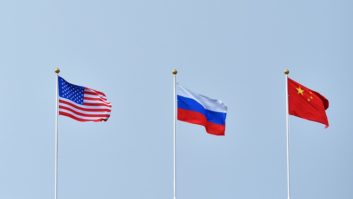Several broadcaster advocacy groups are asking the FCC not to implement its new rule about investigating the sources of programming content, pending the outcome of a legal challenge.
The National Association of Broadcasters, the Multicultural Media, Telecom and Internet Council and the National Association of Black Owned Broadcasters have asked the Federal Communications Commission to stay the implementation of its report and order that requires every TV and radio broadcaster now to independently investigate every programming lessee to determine whether the sponsor is a foreign governmental entity or its agent, “even where the leased programming poses no colorable risk of foreign sponsorship.”
The three organizations recently filed a petition for review of the FCC order in an appeals court.
“The commission should stay the order’s implementation pending the completion of judicial review. This case satisfies the requirements for a stay,” they wrote.
“Petitioners are likely to succeed on the merits because the order flatly contravenes Section 317 of the Communications Act, violates the Administrative Procedure Act and unduly burdens speech in contravention of the First Amendment.”
They said this FCC order will require many broadcasters “to spend tens of thousands to hundreds of thousands of dollars to hire and train employees to conduct the required investigations, as well as engage counsel to review their lease agreements and negotiate with lessees to bring existing leases into compliance with the order.
“These unrecoverable costs unreasonably and unnecessarily burden the operations, resources and programming arrangements of broadcast stations across the country … [T]he likely harm from requiring broadcasters to undertake these efforts for thousands of lease agreements— the vast majority of which have no possible connection to foreign governmental entities— outweighs the benefit of such a requirement.”









